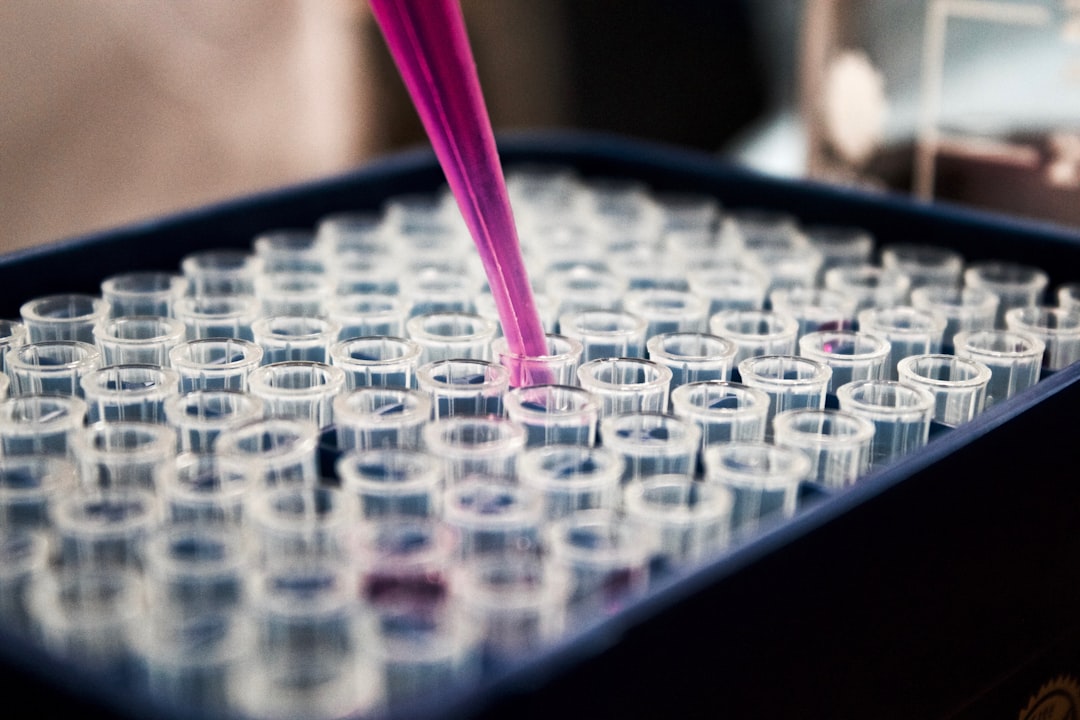The field of medicine has come a long way in the past few decades, with new technologies and advancements making it possible to diagnose and treat diseases in ways that were once thought impossible. One of the most exciting and promising areas of medicine today is personalized medicine, which involves tailoring treatments to individual patients based on their unique genetic makeup and other factors. At the same time, we are seeing rapid progress in the field of artificial intelligence (AI), which is being used in a wide range of applications, from self-driving cars to virtual assistants. Now, these two fields are intersecting, with AI being used to develop more personalized and effective treatments for patients. In this blog post, we will explore the intersection of personalized medicine and AI, looking at the ways in which AI is being used to diagnose diseases, develop personalized drugs, and more. We will also examine the ethical implications of this exciting new area of medicine and discuss the promising future of personalized medicine with AI.
The Power of AI in Diagnosing Diseases
Artificial Intelligence (AI) has proven to be a game-changer in the field of medicine. One of the most significant impacts of AI is its ability to diagnose diseases accurately and quickly. Through machine learning algorithms, AI can analyze vast amounts of data and identify patterns that may be missed by human doctors. This ability is particularly useful in cases where a patient’s symptoms are vague or complex, making it difficult for doctors to pinpoint the exact diagnosis.
AI’s diagnostic capabilities are not limited to a specific disease or medical condition. It can be used to diagnose anything from cancer to heart disease to rare genetic disorders. In some cases, AI can even identify diseases before symptoms appear, allowing for early intervention and treatment.
One example of AI’s diagnostic power is its use in detecting diabetic retinopathy, a condition that can lead to blindness. In a study conducted by Google, an AI algorithm was trained to analyze retinal images and identify signs of the disease. The algorithm was able to identify diabetic retinopathy with an accuracy rate of 90%, which was on par with that of human doctors.
Another example is AI’s use in diagnosing skin cancer. In a study conducted by researchers at Stanford University, an AI algorithm was trained to recognize different types of skin lesions and classify them as either benign or malignant. The algorithm was tested against a group of dermatologists, and it outperformed them in terms of accuracy.
AI’s diagnostic capabilities are not limited to image analysis. It can also analyze data from various sources, such as electronic health records, lab results, and patient history. This ability allows for a more comprehensive analysis of a patient’s condition, leading to more accurate diagnoses and personalized treatment plans.
AI’s ability to diagnose diseases accurately and quickly is a significant breakthrough in the field of medicine. Its diagnostic capabilities are not limited to a specific disease or condition, and it can analyze data from various sources, leading to more personalized treatment plans. As AI continues to evolve, its impact on the field of medicine is expected to grow, leading to better patient outcomes and a more efficient healthcare system.
Through machine learning algorithms, AI can analyze vast amounts of data and identify patterns that may be missed by human doctors.
AI’s Role in Personalized Drug Development
As we delve deeper into the intersection of personalized medicine and artificial intelligence, it’s important to recognize the significant role that AI plays in drug development. One of the biggest challenges in drug development is identifying the right target for a specific disease. AI can assist in this process by sifting through vast amounts of data, including genetic information, clinical trial results, and patient data, to identify potential drug targets.
In addition to target identification, AI can also aid in the development of personalized drug therapies. By analyzing a patient’s genetic makeup and medical history, AI can help identify the most effective drug for a specific individual. This approach, known as precision medicine, has the potential to revolutionize the way we develop and administer drugs.
Furthermore, AI can also assist in predicting the efficacy of a drug candidate before it enters clinical trials. This can save time and resources by identifying potential failures early on in the drug development process. Additionally, AI can assist in optimizing the dosing and delivery of a drug, leading to more effective treatment outcomes.
The integration of AI in drug development has already yielded promising results. For example, Insilico Medicine, a biotechnology company, used AI to develop a drug candidate for the treatment of idiopathic pulmonary fibrosis. The drug was designed and developed in just 46 days, a fraction of the time it typically takes to develop a new drug.
However, there are still challenges to overcome in the integration of AI in drug development. For instance, there is a need for more data sharing and collaboration among researchers to fully leverage the power of AI. Additionally, there are concerns about the reliability and accuracy of AI algorithms, which must be addressed to ensure patient safety.
Overall, AI’s role in personalized drug development has the potential to revolutionize the way we approach disease treatment. By leveraging the power of AI, we can develop more effective and efficient drug therapies, leading to better patient outcomes and a healthier society.
However, there are still challenges to overcome in the integration of AI in drug development.
The Integration of AI in Precision Oncology
Precision oncology, also known as personalized cancer care, is a rapidly growing field that aims to provide tailored cancer treatments based on the unique genetic makeup of each individual’s cancer. With the help of artificial intelligence (AI), precision oncology has the potential to revolutionize cancer treatment and improve patient outcomes.
One of the main challenges in cancer treatment is determining the most effective therapy for each patient. Traditional cancer treatments such as chemotherapy and radiation can be effective, but they often come with debilitating side effects and may not work for everyone. Precision oncology, on the other hand, uses genomic testing to identify specific mutations in a patient’s cancer cells and match them with targeted therapies that are designed to attack those mutations.
AI can play a crucial role in the precision oncology process by analyzing large amounts of genomic data and identifying patterns that may be missed by human analysts. AI algorithms can also predict how a patient’s cancer may respond to a particular treatment, allowing doctors to make more informed decisions about which therapies to prescribe.
One example of AI’s potential in precision oncology is the Watson for Oncology program developed by IBM. This program uses AI to analyze patient data and provide treatment recommendations based on the latest scientific research and clinical guidelines. In a study published in the Journal of Clinical Oncology, Watson for Oncology was found to be concordant with human recommendations in 73.9% of cases, demonstrating its potential to improve patient outcomes.
Another example of AI’s integration in precision oncology is the use of machine learning algorithms to predict how cancer cells will respond to different treatments. Researchers at the University of California, San Francisco, developed an algorithm that was able to predict with 90% accuracy whether a patient’s cancer would respond to a particular drug. This type of predictive analysis could help doctors make more informed decisions about which treatments to prescribe, potentially improving patient outcomes and reducing healthcare costs.
Despite the promising potential of AI in precision oncology, there are still challenges to overcome. One of the main challenges is the need for large amounts of high-quality genomic data to train AI algorithms. Another challenge is the need for regulatory frameworks to ensure the ethical use of AI in healthcare.
The integration of AI in precision oncology has the potential to revolutionize cancer treatment and improve patient outcomes. By analyzing large amounts of genomic data and predicting how cancer cells will respond to different treatments, AI can help doctors make more informed decisions about which therapies to prescribe. While there are still challenges to overcome, the promising potential of AI in precision oncology is a step towards a more personalized and effective approach to cancer treatment.
This type of predictive analysis could help doctors make more informed decisions about which treatments to prescribe, potentially improving patient outcomes and reducing healthcare costs.
AI and Genomic Medicine: A Match Made in Heaven
The field of genomic medicine has rapidly advanced in recent years, thanks in part to the integration of artificial intelligence (AI) technology. The ability to analyze vast amounts of genomic data in a short amount of time has opened up new avenues for personalized medicine.
One of the key benefits of AI in genomic medicine is the ability to identify genetic mutations that may be linked to certain diseases. Traditional methods of genetic testing are often time-consuming and can miss important genetic variations. With AI, however, the process is streamlined and more accurate. AI algorithms can quickly scan large datasets and identify patterns that may be indicative of a disease or genetic mutation.
AI can also aid in the interpretation of genomic data. The human genome contains over three billion base pairs, making it a daunting task for even the most experienced geneticists to sift through. AI can quickly identify genetic variants that are associated with certain diseases, making it easier for healthcare providers to make informed decisions about patient care.
Another area where AI is making a significant impact in genomic medicine is in the development of new treatments. By analyzing genomic data from patients with certain diseases, AI algorithms can identify potential drug targets and predict which treatments may be most effective for a given patient. This approach, known as precision medicine, has the potential to revolutionize the way we treat diseases.
Despite the many benefits of AI in genomic medicine, there are also ethical considerations that must be taken into account. For example, there is concern that the use of AI in genomic medicine may lead to discrimination against individuals with certain genetic mutations. Additionally, there are concerns about data privacy and the potential misuse of genomic data.
The integration of AI technology in genomic medicine has the potential to transform the field of personalized medicine. By quickly analyzing vast amounts of genomic data, AI can aid in the identification of disease-causing mutations, aid in the interpretation of genomic data, and help identify potential drug targets. However, it is important that we carefully consider the ethical implications of this technology and ensure that patient privacy is protected.
One of the key benefits of AI in genomic medicine is the ability to identify genetic mutations that may be linked to certain diseases.
The Ethical Implications of AI in Personalized Medicine
As with any new technology, artificial intelligence (AI) brings with it a set of ethical considerations. In the realm of personalized medicine, where AI is being used to diagnose diseases, develop drugs, and tailor treatments to individual patients, these ethical implications become even more complex.
One of the main concerns when it comes to AI in personalized medicine is privacy. As AI algorithms analyze vast amounts of patient data to make predictions and recommendations, there is a risk that this data could be misused or stolen. Patients may be hesitant to share their personal information if they fear it will be used against them in some way. Additionally, there is the issue of bias in AI algorithms, which can perpetuate existing disparities in healthcare outcomes.
Another ethical issue surrounding AI in personalized medicine is the potential for overreliance on technology. While AI can provide valuable insights and recommendations, it is important not to overlook the expertise and judgment of healthcare professionals. Doctors and nurses must still be able to interpret and act on AI-generated data in a way that is appropriate for each patient’s unique circumstances.
Finally, there is the question of accountability. If an AI algorithm makes a mistake that leads to a patient’s harm, who is responsible? Is it the software developer, the healthcare provider, or the patient themselves? As AI becomes more integrated into personalized medicine, it will be important to establish clear lines of accountability and responsibility.
While the potential benefits of AI in personalized medicine are significant, it is important to consider the ethical implications of this technology. Privacy, bias, overreliance on technology, and accountability are just a few of the issues that must be addressed as AI continues to transform the field of healthcare. By taking a thoughtful and proactive approach to these ethical considerations, we can ensure that AI is used in a way that benefits patients and advances the practice of personalized medicine.
In the realm of personalized medicine, where AI is being used to diagnose diseases, develop drugs, and tailor treatments to individual patients, these ethical implications become even more complex.
Conclusion: The Promising Future of Personalized Medicine with AI
As we have seen throughout this blog post, the intersection of personalized medicine and artificial intelligence has immense potential for transforming the healthcare industry. AI has already demonstrated its power in diagnosing diseases with greater accuracy and speed than human doctors, and in developing personalized drugs that can target specific genetic mutations.
In precision oncology, AI is helping doctors to identify the most effective treatments for individual patients based on their unique genetic profiles, leading to better outcomes and fewer side effects. And in genomic medicine, AI is providing insights into the complex interplay between genes and disease, opening up new avenues for research and treatment.
But as we embrace the promise of AI in personalized medicine, we must also grapple with the ethical implications of this technology. Who will have access to personalized treatments developed with AI? How will we ensure that the algorithms used to analyze genomic data are unbiased and accurate? These are complex questions that require careful consideration and ongoing dialogue.
Despite these challenges, the future of personalized medicine with AI is bright. As the technology continues to evolve and improve, we can expect to see even more precise and effective treatments that are tailored to the unique needs of each individual patient. By harnessing the power of AI, we can revolutionize healthcare and improve the lives of millions of people around the world.





